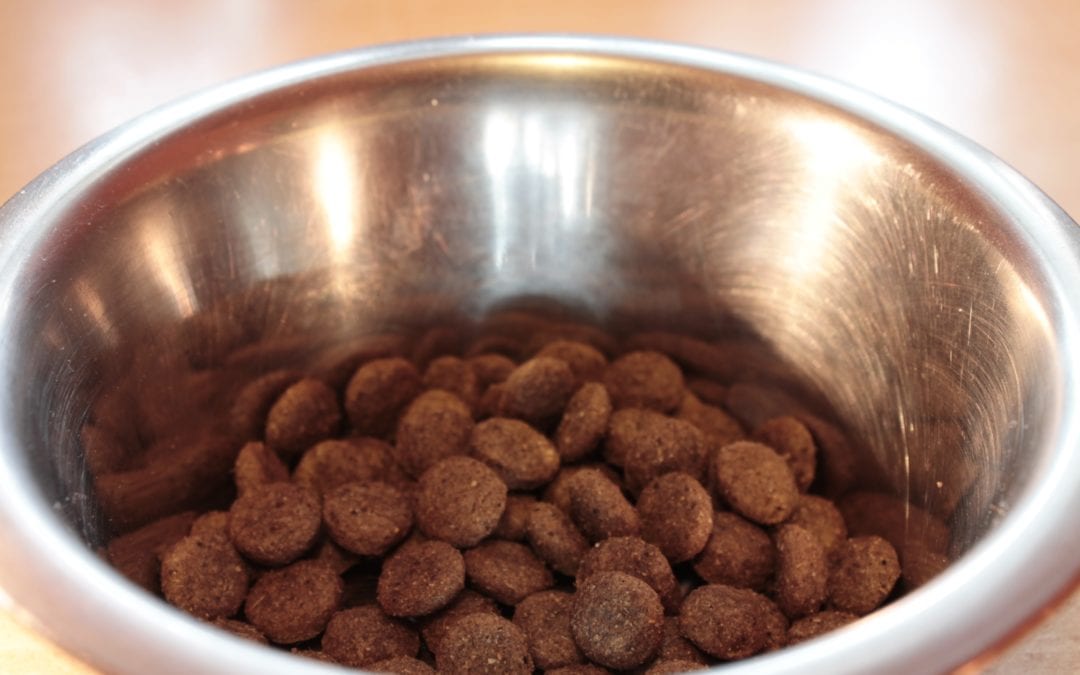Feeding your pet seems like a simple task, but when it comes down to it, pet nutrition is a complicated topic. Now more than ever, the shelves at the pet stores and grocery stores are filled with endless pet food options, making it difficult to choose the right food.
We have compiled a list of some of the more common pet food questions that are asked to help you better understand your pet’s nutrition and empower you as your pet’s caretaker.
How Do I Choose a Pet Food?
First, be sure to check that the food has an AAFCO statement on the bag. This is the organization dedicated to overseeing the quality of pet food sold in the United States. Make sure that the food you choose is AAFCO approved for your pet’s life stage. This ensures that the food is guaranteed to contain all necessary nutrients for your pet’s health.
Take into account any special needs your pet might have. You should choose your pet food based on:
- Age (puppy/kitten, adult, senior)
- Size (large breed, small breed)
- Dietary and medical needs (sensitive stomach, hypoallergenic, weight control, etc.)
Why Did My Veterinarian Recommend a Prescription Diet for My Pet?
Just as for us, nutrition is a powerful tool in keeping pets healthy and happy. Animals that have been diagnosed with certain disease conditions can benefit from being on a diet that contains certain ingredients or certain amounts or ratios of nutrients. Your veterinarian may recommend that you feed your pet such a diet under medical supervision to extend your pet’s life and health.
Are Prescription Diets Good Quality?
In short, yes. These diets are typically subject to rigorous testing and scientific research, more-so than is expected of any over-the-counter diet. Extensive testing, analysis, and inspection of ingredients are done to ensure their quality. It is of utmost importance that prescription diets meet precise nutritional standards.
How Much Should I Feed My Pet?
There is no easy answer to this question. Every food contains a differing calorie content per cup and, as of now, pet foods are not required to label their diets for calorie content.
Most pet foods will have a chart on the packaging suggesting an amount for pets of a certain weight. This is generally a good place to start. Some pets may need to eat more or less, however. You may adjust the amount based on your pet’s body condition score. If you need help with this, never hesitate to ask.
Can Table Scraps Make My Pet Fat?
Absolutely. Many pets do not need very many calories per day to maintain their weight (a 30 pound dog needs to consume about 300 calories). Any source of extra calories can contribute to weight gain.
Can I Make Pet Food At Home?
You can, but… It is not as easy as you might think to formulate a pet diet. Homemade diets may provide a short term solution to a problem, but any diets that are fed long-term should be assessed by a veterinary nutritionist for completeness.
Pet nutrition is a complicated topic and can be overwhelming for many pet owners. Educating yourself and asking questions you might have can help you to make the best decisions for your pet. Like you, your veterinarian wants your pet to remain happy and healthy. Don’t let your vet’s knowledge go to waste – he or she is a great resource for any guidance you may need.
Visit our page on pet nutrition or talk to us about your pet’s specific nutritional needs.

